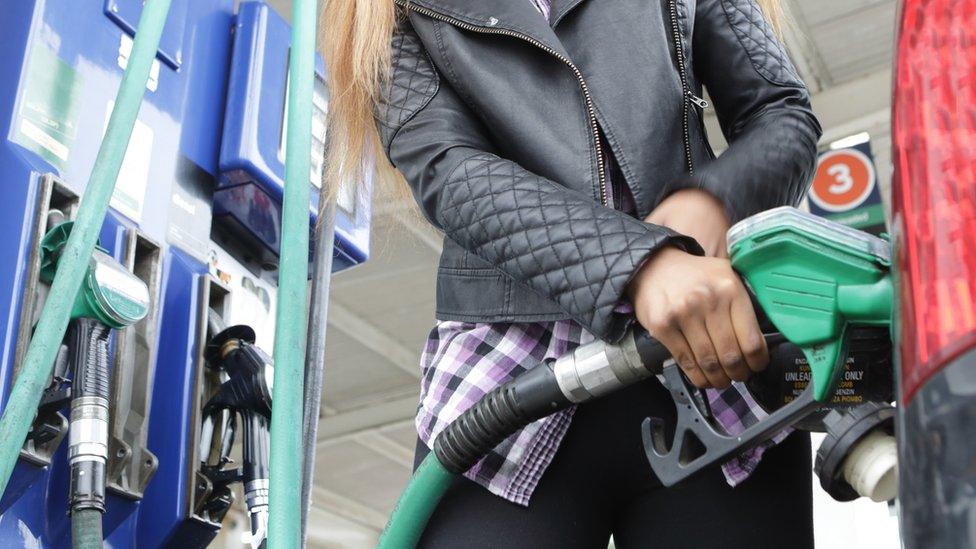Petrol: Supermarkets no longer selling cheapest fuel, RAC says
- Published
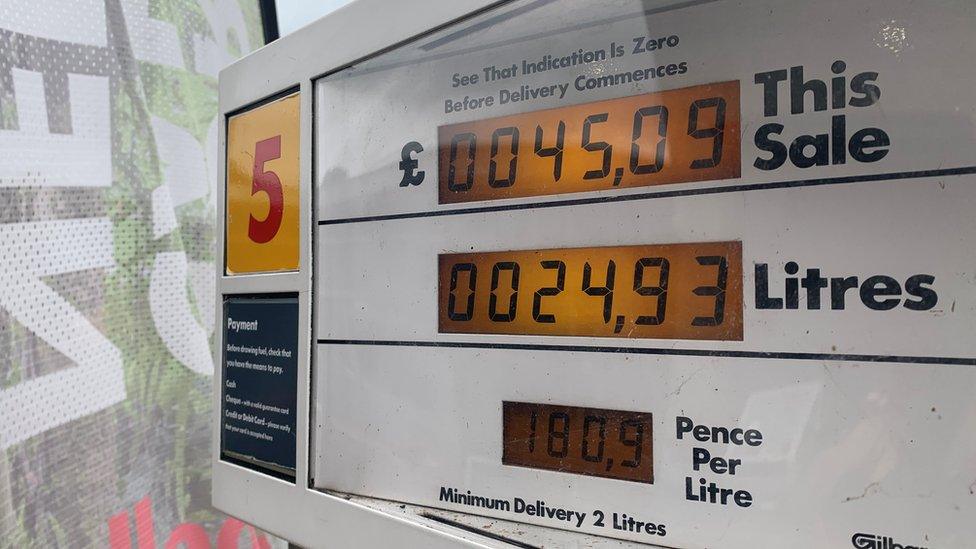
Research by the RAC showed that independent fuel retailers were cheaper than supermarkets
Supermarkets are being undercut by independent garages in Wales as drivers hunt for cheaper fuel, research has suggested.
The RAC found independent garages have become the cheapest places to buy fuel in parts of the country.
Staff at one garage in Llanelli said drivers were coming miles to fill up their tanks due to cheaper prices.
The British Retail Consortium said "retailers had reduced petrol prices significantly" in recent months.
Figures from the RAC show that unleaded fuel fell by 12.67 pence a litre on average in Wales in August, with diesel prices down by 7.89 pence a litre.
At the end of August, a litre of unleaded in Wales cost 168.27 pence per litre on average, with diesel costing 183.28 per litre.
Rod Dennis from the RAC said more drivers were shopping around for fuel as they juggled rising bills and fuel costs.
"When we last surveyed drivers in Wales, about 40% said they were actively seeking out cheaper petrol stations," he said.
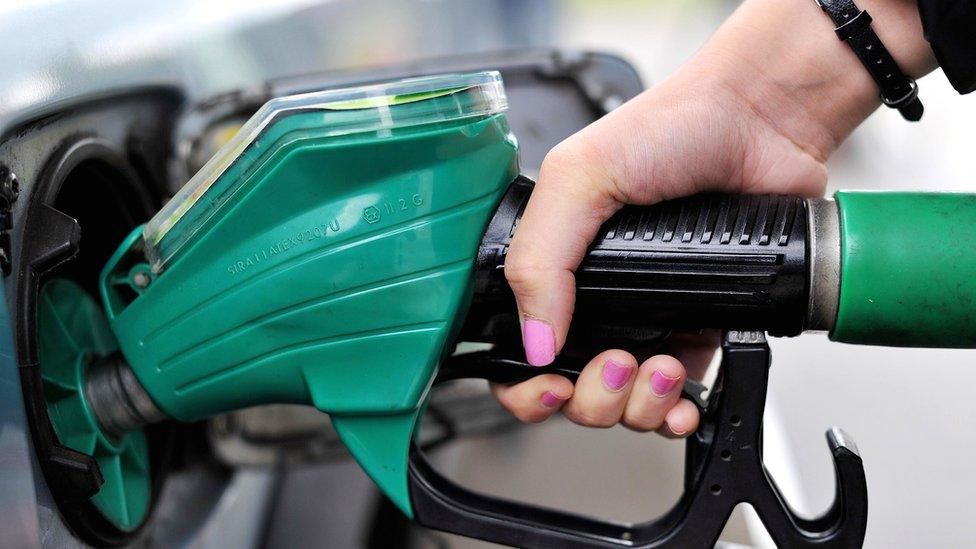
The RAC says drivers are becoming more cost conscious due to the cost-of-living crisis
"Now, because of the cost of living crisis, that seems to have changed, and drivers are becoming more cost conscious."
He urged drivers in Wales to "get to know their local petrol station", and to look for the cheapest price in their area.
According to the RAC, the biggest supermarkets were charging just 1.62p below the average price of petrol last month (168.18p), compared with the typical 3p, which they can normally offer.
Mr Dennis said that "petrol prices haven't come down nearly enough", and it was "often no longer the case" that supermarkets had the cheapest fuel.
He added that supermarkets now seemed to be more concerned with grocery sales than "getting people onto forecourts" which has given more of an opportunity for independent petrol stations.
He added that retailers should be making greater efforts to reduce petrol prices, as wholesale prices had fallen significantly.
"If you're a diesel driver, you're actually paying a fair price for fuel, but petrol drivers are getting a bad deal."
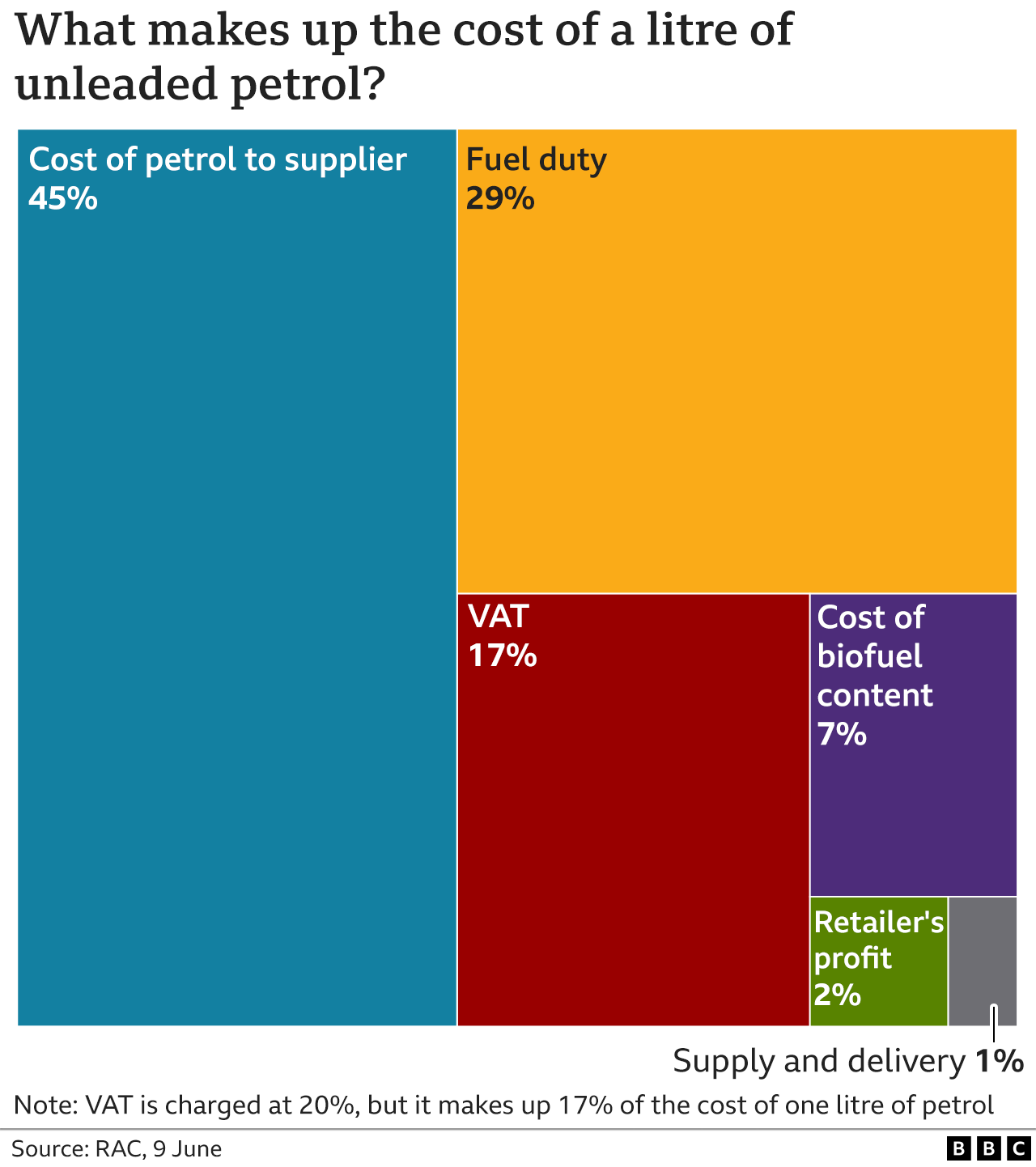
Why is it cheaper?
Stuart Cole, Professor emeritus of transport at the University of South Wales (USW), said that some wholesalers were selling fuel at different rates to retailers.
He added that other businesses were buying "some time in advance" which could also lead to a variation in prices on the forecourt.
"Some petrol companies, the wholesalers may decide they want to get into a market and offer a price at a very low level to a particular retailer," he said.
"Small retailers may have made a deal with the petrol companies to sell their fuel at a lower level."
He said the more competition you have in a local market, like Llanelli, the lower the price is likely to be.

Raj Saravanan, retail manager at Bryn Garage in Llanelli, sees people coming from across the border to fill up
At Bryn Garage in Llanelli, Carmarthenshire, retail manager Raj Saravanan said people were coming for miles for fuel, with the garage having one of the lowest prices in the area.
Mr Saravanan said the price of fuel at the garage changed "every couple of days".
Karthikeyan Thamaraiselvan, who also works at the garage, said people were travelling from Swansea, Ammanford and Carmarthen.
"In three counties, we are the lowest - we set the price as low as possible," they said.
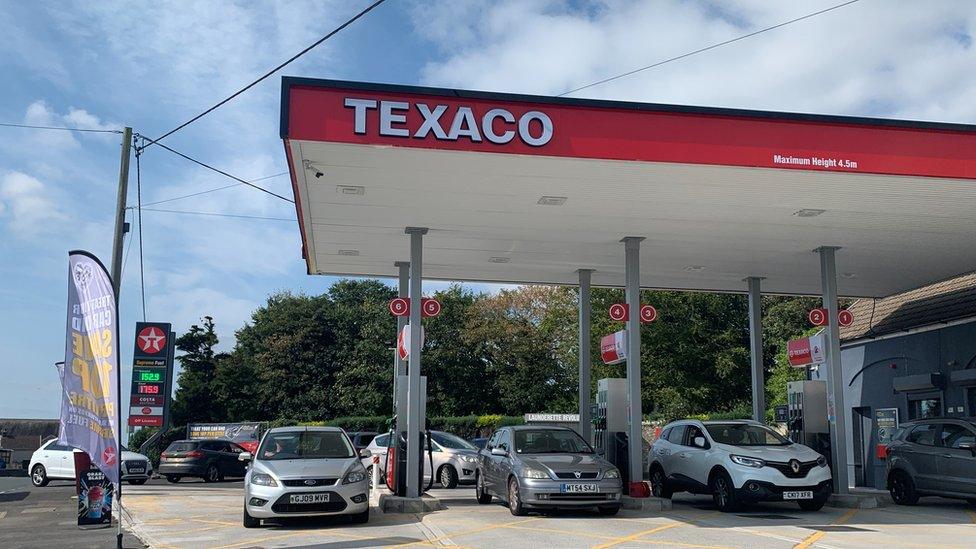
A spokesperson for the RAC urged drivers to get to know their local petrol stations like this one in Llanelli
Andrew Opie, Director of food and sustainability at the British Retail Consortium, which represents large retailers such as Sainsbury's, Asda and Morrisons supermarkets, said: "Retailers have reduced petrol prices significantly over the last month to reflect falling oil prices.
"They understand the cost pressures facing motorists and will do everything they can to offer the best value-for-money across their forecourt, passing on cost reductions as they feed through the supply chain."
- Published23 September 2022
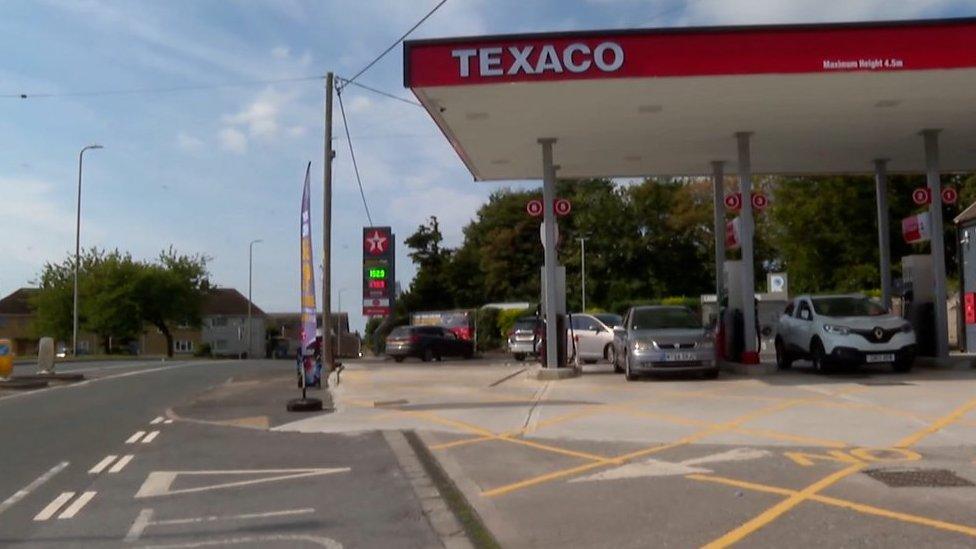
- Published31 August 2022
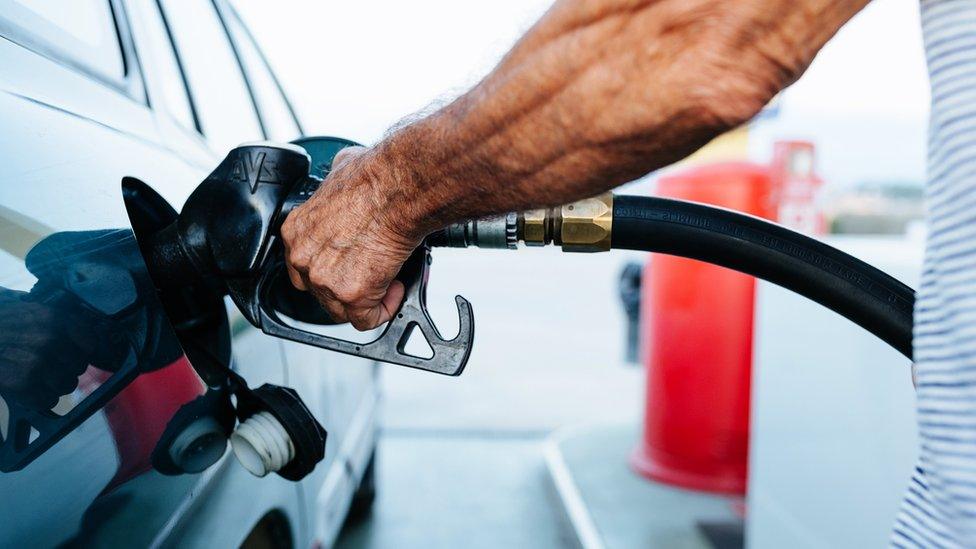
- Published10 August 2022
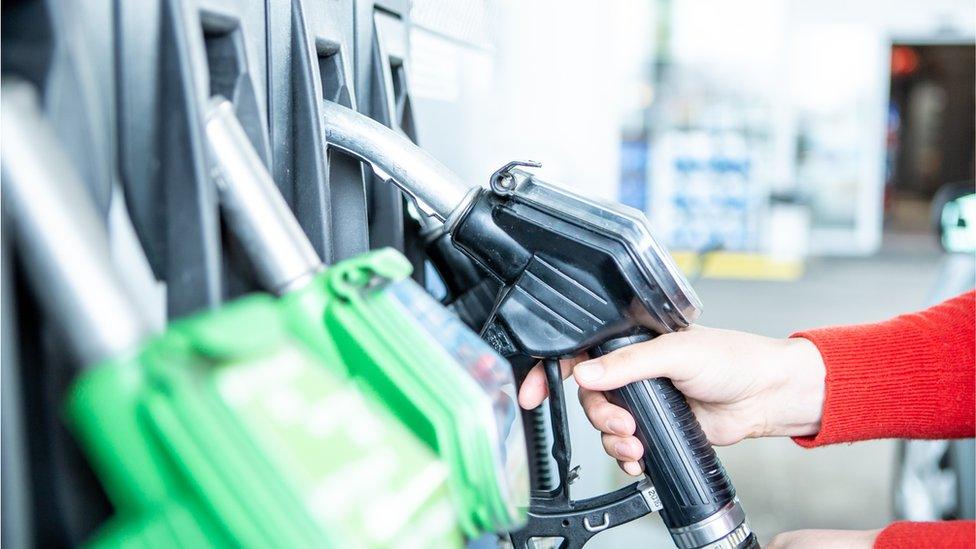
- Published4 August 2022
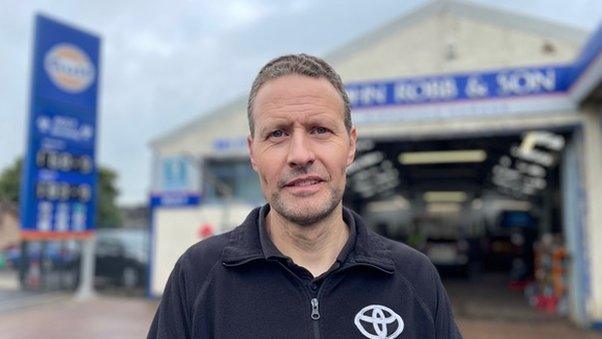
- Published3 August 2022
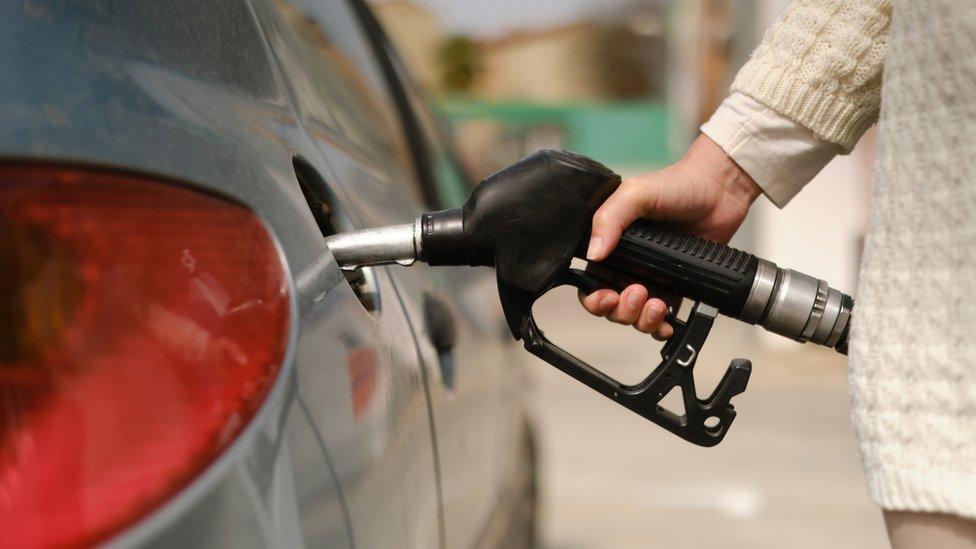
- Published1 August 2022
